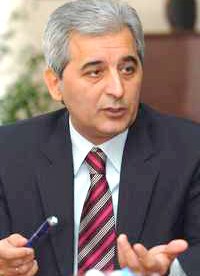The purpose of the process of decentralization of power is that the level of decision-making is closer to citizens for all issues that have a direct impact on their daily lives, therefore we support the initiative of the Ombudsman for opening the debate in terms of the realization of citizens' rights for issues of local competences, said the Minister of Local Self-Government Risto Penov.
- In 2005, the system of local self-government was radically reformed and the main pillar of that reform was the decentralization of power. In this way, more direct participation of citizens in the creation of local services would be enabled, according to their priorities, but also more direct pressure on local authorities for more efficient, more responsible and more transparent work, added Penov.
Regarding the decentralization process, the Minister of Local Self-Government emphasized that any process that is built on assumptions for more democratic, social-economic, comprehensive development of the state and the local community, brings positive changes. The dynamics of the process depends on many circumstances, from the awareness of citizens about their role in the local community and the instruments available to them, from the readiness of local authorities to encourage the participation and involvement of citizens, the capacity at the local level, the financial means with which available, the way of planning and their realization.
- Given the importance of all these aspects, so that the municipality can respond to the needs of the citizens, the Ministry of Local Self-Government with great support from the donor community, from the European Union, from the Swiss Government, from the Swedish Government, from the UNDP , USAID, OSCE and other international organizations, constantly implements projects to strengthen municipal capacities. Priority is given to mechanisms for more democratic and transparent management of local government affairs, as well as improving the quality of public services. The Ministry of Local Self-Government in cooperation with the Ministry of Finance and USAID is working on improving the legal framework for property tax, as well as strengthening the capacities of municipalities for the more efficient implementation of this very important competence, which has an impact on directly in the financial capacities of the municipalities for the provision of local services, said the minister.
Penov emphasized that the People's Advocate has a special role in the system of supervising the work of local self-government bodies, in addition to the competent ministries, each in their own field, the State Inspectorate for Local Self-Government, the State Audit Body and the Constitutional Court. The institution of the People's Advocate is a very important link in this system, because it builds its findings and recommendations on the basis of complaints that come directly from citizens.
- Therefore, the Ombudsman's Report is one of the most important mechanisms for ascertaining certain weaknesses, which should help competent bodies and institutions, including municipalities, to eliminate them, to ensure conditions for the full realization of citizens' rights. Only with a joint, coordinated and positive approach of all competent institutions, including local self-government, can weaknesses be corrected. In this direction, the proactive role of citizens is important, as well as the institution of the Ombudsman that represents their interests, said the Minister of Local Self-Government, Penov at the forum "Cooperation of local self-government with the Ombudsman and the benefits of citizens from decentralization" of organized by the office of the People's Advocate, which was held in the municipality of Shtip.
















